Documentation
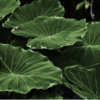
Guest blog: “From the ground to the sky: watering the plant that is your story” – Aneta Brašničková
“Knowledge in Making – Design by Doing” is the title of the Transmission in Motion seminar series. Its second session, moderated by Liesbeth Groot Nibbelink, “Plant-based Dramaturgy”, took place on November 18, 2020. This session’s guest was a Chilean theatre director, scriptwriter and musician, Manuela Infante and she discussed the process of creating Estado Vegetal…
Read more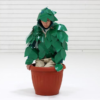
Guest blog: “The Other in the Theatre, the Other in Me” – Jolien Akkerman
In the Transmission in Motion Seminar on plant-based dramaturgy, a talk was organized with Chilean theatre director, playwright and musician Manuela Infante. The talk was moderated by Liesbeth Groot Nibbelink, who asked Infante about the artistic creation process of her work Estado Vegetal (Vegetative State). In this work, Infante explored plant-based logic to formulate several…
Read more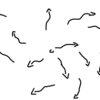
“Who Are We?” – Floor Mijland
In the Transmission in Motion seminar on November 18th, entitled “Plant-based Dramaturgy”, Liesbeth Groot-Nibbelink interviewed Manuela Infante about her performance Estado Vegetal (Vegetative State, CIM/Ae 2017), and the creative process leading up to this theatre piece. Infante uses her theatre practice as a way of thinking through academic ideas based in fields such as speculative…
Read more
“Escaping human frames: can the plant speak?” – Danny Steur
In a way, it is a miracle that a horticultural business exists, because in a sense you never buy one single plant. Rather, you acquire an ever-expanding, living organism which can easily be multiplied by cutting off a small section and planting that elsewhere – from those small cuttings, an entirely new plant grows. In theory,…
Read more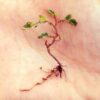
“Plant-based Dramaturgy: Listen to the rhythm of…” – Bernice Ong
Manuela Infante, theatre director of Estado Vegetal, very matter-of-factly recounts the sequential nature of the production’s rehearsal process in the seminar session on ‘Plant-based Dramaturgy’ (18 Nov 2020). For her, the preparatory process undertaken always begins as “procedural,” or what I would interpret to be a task-based methodology. Crucially, Infante shares that her dramaturgical approach…
Read more
“Becoming-Plant by Way of Bergson’s Method of Intuition” – Anthony Nestel
In her recent lecture for the TiM seminar series, Manuela Infante quoted plant philosopher Michael Marder with regard to the making of her piece Estado Vegetal (2017): “to recognize a valid ‘other’ in plants is also beginning to recognize that vegetal other within us” (Infante 2020). In order to make sense of the above quote,…
Read more
Meet the Makers
The Meet the Makers programme facilitates meetings and conversations between students, teachers and researchers at UU, and makers – i.e., artists, curators, dramaturges, designers or other creative practitioners and professionals within the wider field of arts and culture. We usually organise a Meet the Makers event every block during the academic year, but sometimes
Read more
Transmission in Motion Seminar (2020-2021): “Knowledge in Making – Design by Doing”
This year’s Transmission in Motion seminar finds itself inspired by approaches to knowing that zoom in on experimental practices of ‘making’. Making, here, is understood as a form of ‘design by doing’. Such practices of designing a technological device, an artistic concept or a didactic plan embrace unpredictability and contingency by refraining from adhering to…
Read more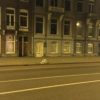
“Glitchy future(s)” – Freja Kir
Following a focus on Loud tools, a Horizon of beats as measuring tools, an Infrastructure of theatrical tools and notes on The display as a publishing tool this is the last and final post in a series of short writings focusing on current perspectives and methods for measuring transmissions in motions. These posts are rooted…
Read more
“Distributed educational practices: What does it mean to learn in a networked manner?” – Aishwarya Kumar
On a walk back home from the grocery store where I had just picked up supplies essential to my current lifestyle, I received three notifications. The first was a shared link on Whatsapp by a classmate from Amsterdam about a zoom call that was being conducted by Institution for the Arts and Humanites –Judith Butler in…
Read more
